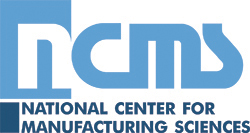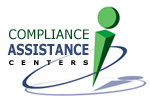 |
 |
The Value of NASF/AESF Foundation Industry Certification
Since 1969, thousands of individuals have taken advantage of the society’s education and certification programs.
Why Become Certified?
-
NASF/AESF Foundation certifications are well received by employers and organizations seeking to differentiate between candidates for consulting, teaching, and managerial positions.
-
Employers in job shop metal finishing, metal finishing supply companies and captive facilities such as airlines and aerospace firms also use AESF certifications to demonstrate a range of technical knowledge to potential customers and ISO/NADCAP auditors.
-
An individual that becomes AESF certified develops and sense of pride and self-confidence that is nearly impossible to monetized-it simply “feels good”.
-
It is not unusual to receive a request for a proposal/quotation from a captive metal finisher, USEPA, DOD, or a number of other organizations that requires the respondent to be AESF certified.
-
If an individual is in the job market, it is desirable to have an AESF certification, and some employers make certification a requirement for employment.
-
Employers may pay (and potential employees may expect) higher wages or bonuses to employees that become certified.
AESF presently offers seven levels of certification to individuals knowledgeable in a wide array of subjects as demonstrated by successfully completing examinations developed by the society’s committees:
Certified Electroplater-Finisher “CEF”
This certification indicates that the recipient has a broad basic level of knowledge in metal finishing processes. To obtain this certification, a candidate must successfully complete a 2 hour examination covering more than 22 metal finishing related topics.
Certified Aerospace Fininsher “CAF”
This certification indicates that the recipient has a broad basic level of knowledge in metal finishing processes related to the airline/aerospace industry. To obtain this certification, a candidate must successfully complete a 2 hour examination covering 21 metal finishing related topics.
Certified Electroplater-Finisher “CEF” Levels 2-5
This certification indicates that the recipient has a broad basic level of knowledge in metal finishing processes and has also demonstrated knowledge in specialized fields such as corrosion, precious metals plating, aluminum finishing and numerous other subjects. To obtain these higher certification levels, a candidate must successfully complete the CEF or the CAF examination plus one extra examination in a specialized field for each additional level of certification (see MSF certification for available specialized field exams).
Master Surface Finisher “MSF”
To obtain an MSF certification, a candidate must be CEF or CAF certified and must successfully complete a total of six examinations, four “core” and two optional subjects as shown below:
Primary (Chose 1
-
Electroplating and Surface Finishing (CEF)
-
Airline/Aerospace Finishing (CAF)
Core: (Chose any 3)
-
Aluminum Finishing
-
Chromium Plating for Engineering Apps
-
Electroforming
-
Electroless Deposition
-
Industrial & Precious Metals Plating
-
Zinc & Zinc Alloy Plating
Optional (Chose 2):
-
Corrosion and Salt Spray
-
Environmental Stewardship-Part 2: Pollution Prevention
-
Environmental Stewardship-Part 1: Wastewater Treatment & Control
The certification process is applicable to all learning styles and can fit your schedule. Students may complete courses and exams in any order and utilize any of the four learning platforms:
Home Study, In-Person Training, Web-Based Training and In-House Customized Training to complete the curriculum.
To learn more about NASF/AESF Foundation’s industry training, contact Matt Martz, Director or Membership and Education at: mmartz@nasf.org
 |
 |
 |
The information contained in this site is provided for your review and convenience. It is not intended to provide legal advice with respect to any federal, state, or local regulation.
You should consult with legal counsel and appropriate authorities before interpreting any regulations or undertaking any specific course of action.
Please note that many of the regulatory discussions on STERC refer to federal regulations. In many cases, states or local governments have promulgated relevant rules and standards
that are different and/or more stringent than the federal regulations. Therefore, to assure full compliance, you should investigate and comply with all applicable federal, state and local regulations.